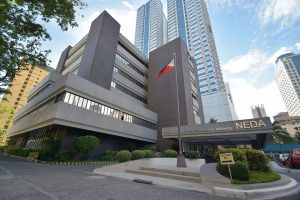
NEDA: More researchers needed to meet innovation goals
THE National Economic and Development Authority (NEDA) said it will support the Philippines’ innovation goals by advocating for scholarship programs to train researchers.
“We will be pushing for a massive scholarship program to help us reach our target of 500 researchers per million population by 2028,” NEDA Undersecretary Rosemarie G. Edillon said.
Citing the Global Innovation Index, NEDA said that the Philippines had only 174 researchers per million population in 2018.
Under the National Innovation Agenda and Strategy Document, the government hopes to increase the number of researchers to 1,500 per million population by 2040.
It is also targeting to increase expenditure on research and development (R&D) to 1.8% of gross domestic product by 2040.
Ms. Edillon cited the need to increase the number of researchers and make R&D output more accessible to investors.
“We need to create a culture of innovation, where innovators are constantly looking for ways to improve products and services, and making consumers more willing to try innovative products and provide constructive feedback,” she said.
“What’s important right now is having a good knowledge management system for R&D output and having platforms that tell innovators where they can find the outputs they need to innovate,” she added.
Under the national innovation strategy, the government is targeting to strengthen basic R&D and knowledge creation; advance market-driven and customer-centered R&D, scale up technology adoption, utilization, and commercialization; and accelerate innovation and entrepreneurship.
In a separate statement, NEDA announced it is also working with the US Agency for International Development (USAID) on the US-Philippines Partnership for Skills, Innovation, and Lifelong Learning (UPSKILL) program.
“The initiative aims to strengthen the Philippine higher education system for broad-based, inclusive growth. With $30 million funding from USAID, UPSKILL will run for five years,” NEDA added. — Luisa Maria Jacinta C. Jocson



